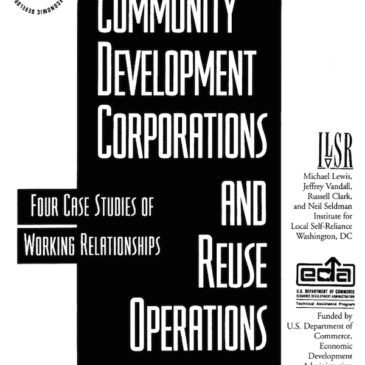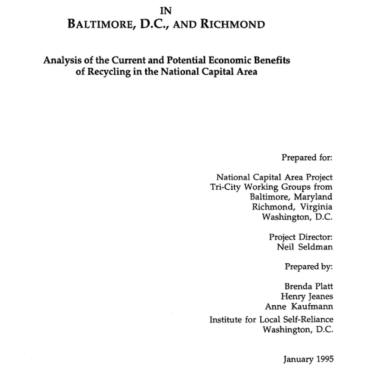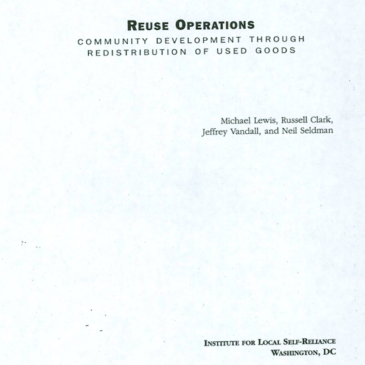RECYCLING AT THE CROSSROADS: DEBATING ITS POTENTIAL
Plenary Session Debate with Brenda Platt, Jerry Powell, and J. Winston Porter National Recycling Congress Pittsburgh, Pennsylvania, September 18, 1996 Remarks by Brenda Platt Director of Materials Recovery Institute for Local Self-Reliance, Washington, DC Fifteen to twenty years ago, many solid waste planners thought that 10 percent recycling was the limit. In the late 1980s this … Read More






